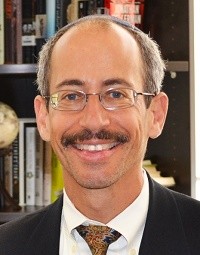 Edit article
Edit articleSeries
Symposium
An Honest Discussion with High School Students

As an educator and head of school, I believe students should be exposed to the complexity of our tradition. It is better that students discuss problematic issues in an environment where they can avail themselves of a collective struggle for meaning than to confront these texts and historical episodes solo or, worse, be blindsided in some hostile context.
Introducing Eleventh Graders to Psalm 137 and Student’s Reactions
In light of recent events in Israel, I chose to share, as a guest teacher, the verse of Psalm 137.9 with our eleventh graders. Most of the students were shocked or incredulous that our sacred tradition could celebrate violence against children. They struggled to understand how someone could hold such aspirations.
Visceral Response to What the Jews Themselves Suffered
The majority of students contextualized the psalmist’s words. They understood the psalmist to be living at a time after the destruction of the first Temple and, in the words on one student, “writing with his emotions.” “He was exaggerating,” noted another. One student added, “people go through stages of mourning, one of which is anger. The writer was angry and in pain. He was lashing out. He didn’t mean for his words to be taken literally.” I would add that the psalmist states ambiguously אשרי שיאחז (happy is he who seizes) without identifying the subject of the verb. He does not say, for example, אשרי הגבר or אשרי האיש (“happy is the man”). Although he expresses a desire for vengeance, it is not he who will take vengeance. The subjectless verb may, in fact, be God.
For me, what also comes to mind is the Book of Lamentations that describes situations like,
אִם־תֹּאכַ֨לְנָה נָשִׁ֤ים פִּרְיָם֙
עֹלֲלֵ֣י טִפֻּחִ֔ים
Women eat their own fruit,
their new-born babies (Lam 2:20).
יְדֵ֗י נָשִׁים֙ רַחֲמָ֣נִיּ֔וֹת
בִּשְּׁל֖וּ יַלְדֵיהֶ֑ן
With their own hands, tenderhearted women
cooked their children (Lam 4:10).
In conditions where Judeans were compelled or felt compelled to engage in the basest acts, to me, it is not surprising that they hoped for the day that something similar would happen to their oppressors, i.e., the horrific aspiration expressed in Psalm 137:9.
Morally Problematic Verses and the Need to Interpret Them
Some students knew enough Tanach to evince other morally problematic texts. They recognized, however, that Judaism today relies on an interpretive tradition. Or, they argued that in some inexplicable way, there are values that transcend the text that guide us and steer us away us from acting on verses like Psalm 137:9.
I, myself, think in terms of a normative interpretation of a verse that is not necessarily the peshat of the verse, i.e., what it meant when it was written, but is the understanding commonly endorsed and lived by the Jewish community.[1] In the case of our psalm, common decency dictates that we don’t seek vengeance on the innocent, and this includes the children of our enemy.[2] The verse is merely descriptive, not prescriptive.
Should Students Be Taught This Psalm?
After I finished my guest lesson, I asked the students, all of whom were in grade 11, if they thought that it was appropriate for me to have taught them this psalm. Initially, some said that it is appropriate only for students in older grades. They felt it might not be so responsible to burst the naiveté of students in grades 9 and 10. Another challenged that view and said, “I hate being taught that Jews and Judaism are perfect. It’s not realistic.” To this, one student said “some teachers are worried we’ll close the book (the Tanach) if we are exposed to problematic passages. I think I’m more likely to open it.”
I don’t know if students are more likely to open the Tanach if they learn a more balanced perspective, but I do know that a balanced perspective will expose them to important enduring questions. Grappling with these questions can be a source of joy and will help ensure they will be guardians of our tradition.
TheTorah.com is a 501(c)(3) nonprofit organization.
We rely on the support of readers like you. Please support us.
Published
February 28, 2015
|
Last Updated
March 30, 2024
Previous in the Series
Next in the Series
Footnotes

Rabbi Lee Buckman is Head of School at TanenbaumCHAT in Toronto. He received his M.A. from the University of Minnesota, Rabbinic Ordination and another M.A. from the Jewish Theological Seminary of America, Orthodox semicha from Rabbi Daniel Channan and Rabbi Zalman Nechemiah Goldberg, and is currently working on his MBA. He manages Mifgashim, a weekly educational e-bulletin sponsored by the Lookstein Center and blogs at http://thebuckstopshere.tanenbaumchat.org/.
Essays on Related Topics:





